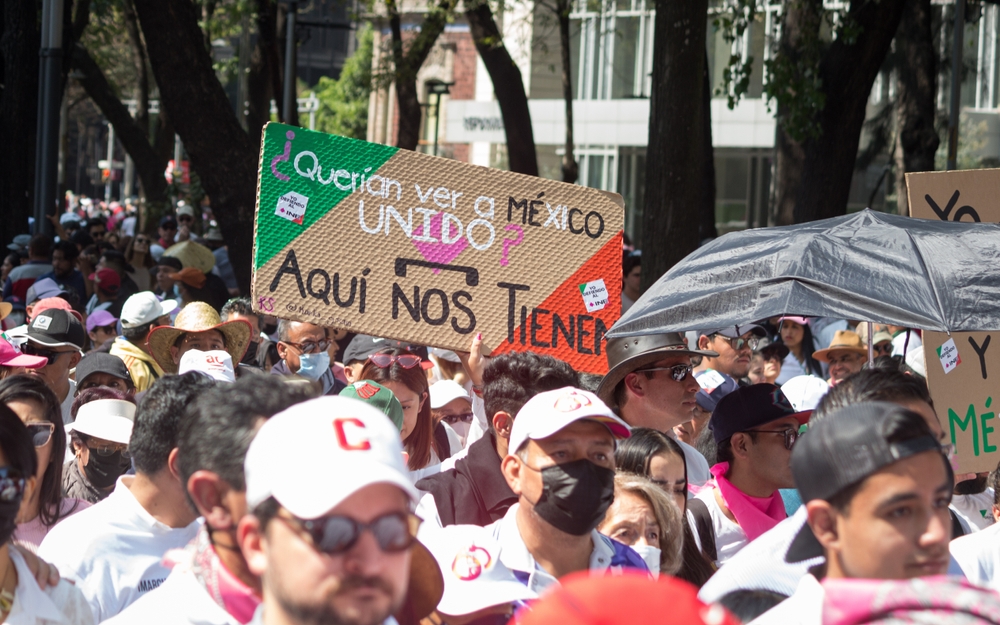A 100,000-strong demonstration of government critics in the heart of Mexico City has raised questions about the strength of President Andrés Manuel “AMLO” López Obrador, following four relatively comfortable years at the helm of the country, which contrasted sharply with the instability of many of his counterparts elsewhere in Latin America.
While AMLO is still a relatively popular leader, last week’s rally marked the first time since his landslide electoral victory in 2019 that large swathes of the Mexican population actively joined efforts against him.
The country’s professional middle classes in big urban centers such as Mexico City or Monterrey have been growing increasingly wary of his administration, but the opposition — notably the traditional Institutional Revolutionary Party (PRI) and its former center-right foes from the National Action Party (PAN) — has not managed to capitalize on that discontent.
In the end, it was not the political opposition to AMLO that succeeded in mobilizing his critics, but the president’s own political reforms, which sparked fears about an attack on the country’s institutional checks and balances.
AMLO initially tried to pass an ambitious constitutional reform project, which would have introduced electronic voting, replaced proportional representation systems with single member districts, drastically reduced the number of lawmakers in national and state legislatures, cut funding to political parties, facilitated voting for Mexicans living abroad, and — perhaps most notably — replaced the country’s autonomous National Electoral Institute (INE) with a new body of elected members.
But the president failed to reach out across the aisle in Congress in order to secure the two thirds majority needed to reform the 18 constitutional articles his proposal targeted, so...


 Search
Search






































